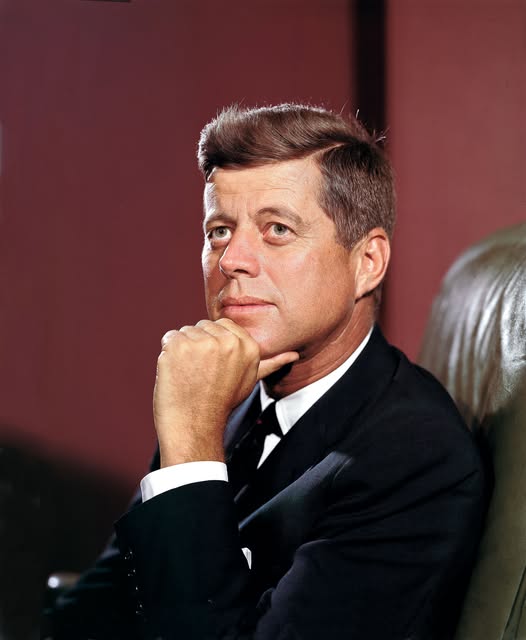John F. Kennedy, the 35th President of the United States, remains one of the most iconic and debated figures in American history. Elected in 1960 at the age of 43, Kennedy was the youngest president ever elected and the first Catholic to hold the office.
His presidency, though tragically cut short by assassination in 1963, was marked by several significant achievements and moments of profound challenge. Kennedy inspired a generation with his call to public service, famously urging Americans to “ask not what your country can do for you—ask what you can do for your country.”
During his time in office, Kennedy faced the height of the Cold War tensions, including the Cuban Missile Crisis, which brought the world perilously close to nuclear war. His skillful handling of this crisis is often cited as a testament to his leadership and diplomacy.
Kennedy also championed the space race, setting the ambitious goal of landing an American on the moon by the end of the decade. This vision spurred technological innovation and national pride.
Domestically, his presidency pushed forward civil rights, although much of the legislative progress occurred after his death. Kennedy’s advocacy laid important groundwork for the civil rights movement.
Despite these accomplishments, critics argue that his presidency was marked by inexperience and that some of his policies, such as the escalation of U.S. involvement in Vietnam, had long-term negative effects.
Kennedy’s charisma, youthful energy, and eloquent speeches have contributed to his lasting popularity and the idealized image many hold of his presidency.
Ultimately, whether Kennedy ranks among the greatest presidents depends on the criteria one values most—his inspirational leadership and vision or the practical outcomes of his policies.
What remains undeniable is his impact on American culture and politics, as well as the enduring fascination with his life and tragic death.
